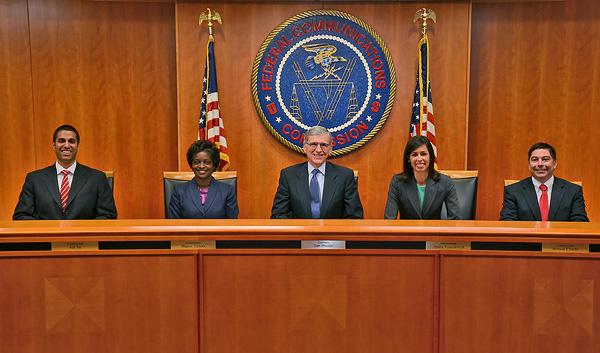By Scotty Schenck, photo editor
A 3-2 vote taken by the Federal Communications Commission (FCC) on Feb. 26 approves measures to protect net neutrality, or the right to a Internet that treats all legal information equally no matter who created it or who is trying to see it. The protection of net neutrality ensures Internet providers cannot slow the transfer of information.
These new rules,detailed in the FCC Chairman Tom Wheeler’s proposal released on Feb. 4, will bar Internet service providers from blocking or slowing online connections and then charging for priority service, which would give website faster connection times to their users.. According to the FCC, this would establish the following statutes:
• Prohibit broadband providers from blocking access to legal content, applications, services and non-harmful devices.
• Prohibit broadband providers from impairing or degrading lawful Internet traffic, or throttling, on the basis of content, applications, services or non-harmful devices.
• Prohibit paid prioritization by broadband providers, or the favoring of certain traffic over other traffic as long as the content is legal. It also bans the providers “from prioritizing content and services of their affiliates.”
Comcast had throttled the connection speeds of its customers to Netflix.com when the two companies were negotiating in early 2014. Though Netflix ended up paying for a deal with Comcast to stream movies at regular speeds, this quickly became an issue for many Americans. Comcast has had a history of slowing connections, according to an Associated Press story in 2007, where Comcast was accused of slowing traffic to the download program BitTorrent, sometimes used to torrent copyrighted content. In fact, the same thing had happened in 2010 when Comcast throttled Internet speeds for its user. The FCC tried to implement net neutrality rules in 2010; however, several parts of these regulations were struck down in the Court of Appeals for the D.C. Circuit.
Content providers, such as Apple, Google, Netflix, Yahoo!, Amazon and Microsoft, support net neutrality. Internet providers primarily make up the opposition, including Verizon, Comcast, AT&T and T-Mobile. The issue itself has become partisan, where a majority of Republicans oppose and a majority of Democrats support net neutrality. Republican Senator Ted Cruz of Texas has showed his criticism of the policy since last year.
“Net Neutrality’ is Obamacare for the Internet; the Internet should not operate at the speed of government,” Cruz tweeted on Nov. 10, 2014.
The American Civil Liberties Union (ACLU)described net neutrality as prohibiting companies from “discriminating against information by halting, slowing, or otherwise tampering with the transfer of any data.” This means that private companies or internet providers, such as Comcast, can no longer slow certain Internet traffic until companies, like Netflix, pay them for faster service.
The ACLU stands behind net neutrality alongside others, including comedian John Oliver, who hosts the HBO show “Last Week Tonight.”
“The Internet in its current form is not broken and the FCC is currently taking steps to fix that,” Oliver said on his show on June 1, 2014. “Ending net neutrality would allow big companies to buy their way into the fast last, leaving everyone else in the slow lane.”
The Wall Street Journal said as a result the FCC is likely to face lawsuits from cable companies.
“The Internet is simply too important to allow broadband providers to be the ones making the rules,” Wheeler said during the commission vote. The commissioners are to appear before the Senate Commerce Committee next month.
Photo courtesy the Federal Communications Commission.









